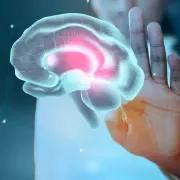10 Common Symptoms of a Neurological disorder
In This Article
10 Common Symptoms of a Neurological disorder
Jaseela
Updated on December 23, 2025
Medically verified by Dr. Arya
Fact checked by Dr. Pournami

Neurology
10 min read
Have you ever wondered what symptoms could indicate neurological disorders? From headaches to tremors, these symptoms can sometimes indicate underlying issues that need to be managed.
Karetrip explores this topic in more detail, shedding light on 10 common symptoms that can indicate arthritis.
By examining each symptom in depth, we aim to clarify and understand it to help you recognise possible warning signs and take appropriate action.
Common Symptoms of Neurological disorders
1. Pain
Pain is a major symptom of neurological diseases. People experience different types of pain, such as back pain, stiff neck, aching muscles, or discomfort in joints. Chronic headaches are also common with neurological issues. Aging can sometimes cause chronic pain, but it can also indicate a problem with the nerves.
2. Problems with memory
Difficulty remembering things due to difficulty concentrating can be a sign of agnosia and other increasing neurological problems. When you have trouble concentrating, you have trouble processing and remembering information, which leads to memory loss.
As long-term memory remains strong, short-term memory may deteriorate.
3. Numbness
Numbness, only minimal or complete, is another great symptom of a neurological factor. Under these conditions, people do not feel touch, pain, or temperature changes.
This can make it difficult to balance, move around, walk, drive, or perform other physical activities. If a rash is attached to avoid possible complications, you should consult a doctor.
4. Sleep problems
Trouble sleeping is also common with neurological issues. Insomnia and hypersomnia are two main sleep problems that can affect overall health. Insomnia makes it hard to fall asleep or stay asleep, while hypersomnia means sleeping too much.
These problems can also bring on anxiety, another sign of neurological issues.
5. Trouble With Vision
The problem of vision Damage to the spinal cord that controls vision in the brain can lead to partial or complete vision loss. Neurocognitive problems include blurred vision or double vision.
People who deal with these vision issues can have difficulty understanding what is happening around them and communicating with others.
It is important to recognise this common arthritis and get the right help. Whether it’s headaches, nausea, seizures, or Parkinson’s disease, each condition requires specific care and support.
Catching them early, seeking help and continuing support is the key to dealing with these problems and living well.
6. Headaches
Headaches range from occasional discomfort to severe pain. They come in a variety of forms, including tension-like headaches, migraines, and cluster headaches.
Tension-Type headache: Often caused by stress or muscle strain, it causes knotty pain around the head.
Migraine: Severe throbbing pain, usually affecting one side of the head. They can be sensitised to light and sound.
Cluster headache: characterised by sharp and intense pain in the discs. Accurate diagnosis is important because treatments vary. Some may find relief with over-the-counter painkillers, while others may require specialised medications or treatments.
7. Muscle weakness
Muscle weakness, difficulty lifting weights, difficulty performing physically demanding tasks, etc.
This could be a neurological symptom that affects the central nervous system, or your brain or areas controlling muscle movement.
8. Shaking or Tremors
Shaking or involuntary shaking, especially when you are at rest or moving, can be an indication of neurological disorders like Parkinson’s disease or essential tremor.
9. Linguistic Problems
Speech and language problems, such as difficulty speaking clearly, speech slurred, difficulty finding words, difficulty understanding language, etc., can be linked to neurological conditions that affect your brain’s processing of speech and language.
10. Sensitivity to Light or Sound
An increased sensitivity to light or sound (photophobia or phonophobia) can be present in a variety of neurological conditions, including migraine, meningitis and sensory processing disorders.
 10 min read
10 min read10 Neurological Benefits of Exercise - Positive Psychology
 10 min read
10 min readChoosing the Right Neurology Hospital: Factors to Consider for Patients and Families
 10 min read
10 min readTop 10 Neurology Hospitals in India
Get a Callback Now
Common Neurological Disorders
Neurological disorders vary widely, from mild symptoms like temporary nerve weakness to severe conditions requiring immediate medical attention. Some common neurological disorders include:
- Stroke:
Strokes happen when there's a disruption in the brain's blood supply, categorised into ischemic and hemorrhagic strokes.
-
Ischemic Strokes: Result from a blocked blood vessel, depriving a part of the brain of oxygen and nutrients. Rapid treatment is essential to minimise brain damage, often involving clot-dissolving medications or mechanical clot removal.
-
Hemorrhagic Strokes: Caused by the rupture of a blood vessel in the brain, leading to bleeding within brain tissue. Surgical interventions may be necessary to stop bleeding and relieve brain pressure.
Post-stroke rehabilitation is vital for recovery, helping patients regain lost abilities and adapt to new challenges they may face.
Epilepsy and Seizures:
Epilepsy is a condition causing unpredictable and recurring seizures, broadly categorised as generalised and focal seizures.
-
Generalised Seizures: Affect the entire brain, resulting in loss of consciousness and uncontrolled muscle movements.
-
Focal Seizures: Originate in a specific brain region, leading to altered consciousness or unusual sensations.
For individuals with drug-resistant epilepsy, surgical procedures and specialised therapies may offer benefits, aiming to improve seizure control and quality of life.
Alzheimer’s Disease and Dementia:
Alzheimer's disease is a progressive neurodegenerative disorder and the leading cause of dementia. It's marked by a gradual decline in memory, significantly impacting daily functioning and behaviour.
Gastrointestinal symptoms may also accompany nerve symptoms, complicating daily life.
Alzheimer’s leads to brain cell damage and a decrease in brain volume.
While its precise cause remains unclear, a combination of genetic, lifestyle, and environmental factors contributes to its development.
Parkinson’s Disease:
Parkinson's disease is a progressive neurological disorder primarily affecting movement. It targets dopamine-producing neurons in the brain's substantia nigra region.
As dopamine levels decrease, symptoms like tremors, stiffness, and slowed movement become prominent. While its exact cause is unknown, it's believed to result from a combination of genetic mutations and environmental exposures.
In conclusion, recognizing the common symptoms of neurological disorders is crucial for early detection, diagnosis, and intervention.
From memory problems and numbness to sleep disturbances and vision troubles, the signs of neurological dysfunction can manifest in diverse ways, impacting various aspects of daily life.
Additionally, symptoms like muscle weakness, tremors, speech difficulties, and cognitive decline further underscore the complexity and diversity of neurological conditions.
By understanding these signs, you and your healthcare providers can work together to promptly address concerns, seek appropriate medical evaluation, and implement effective management strategies.
Ultimately, raising awareness about these symptoms empowers individuals to prioritise their neurological health, fostering proactive care and improved quality of life.
Pain is a key sign of neurological diseases. People may experience different types of pain, like backaches, neck stiffness, muscle soreness, or joint discomfort. Chronic headaches are also common with neurological issues.
Strokes happen when there's a disruption in the brain's blood supply, categorised into ischemic and hemorrhagic strokes.

